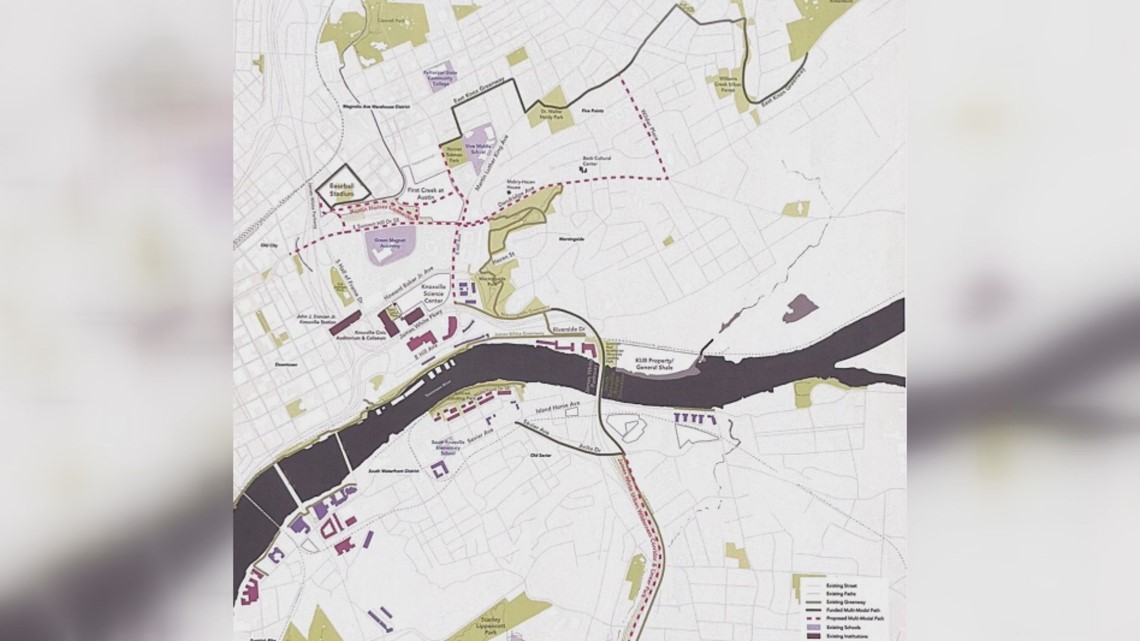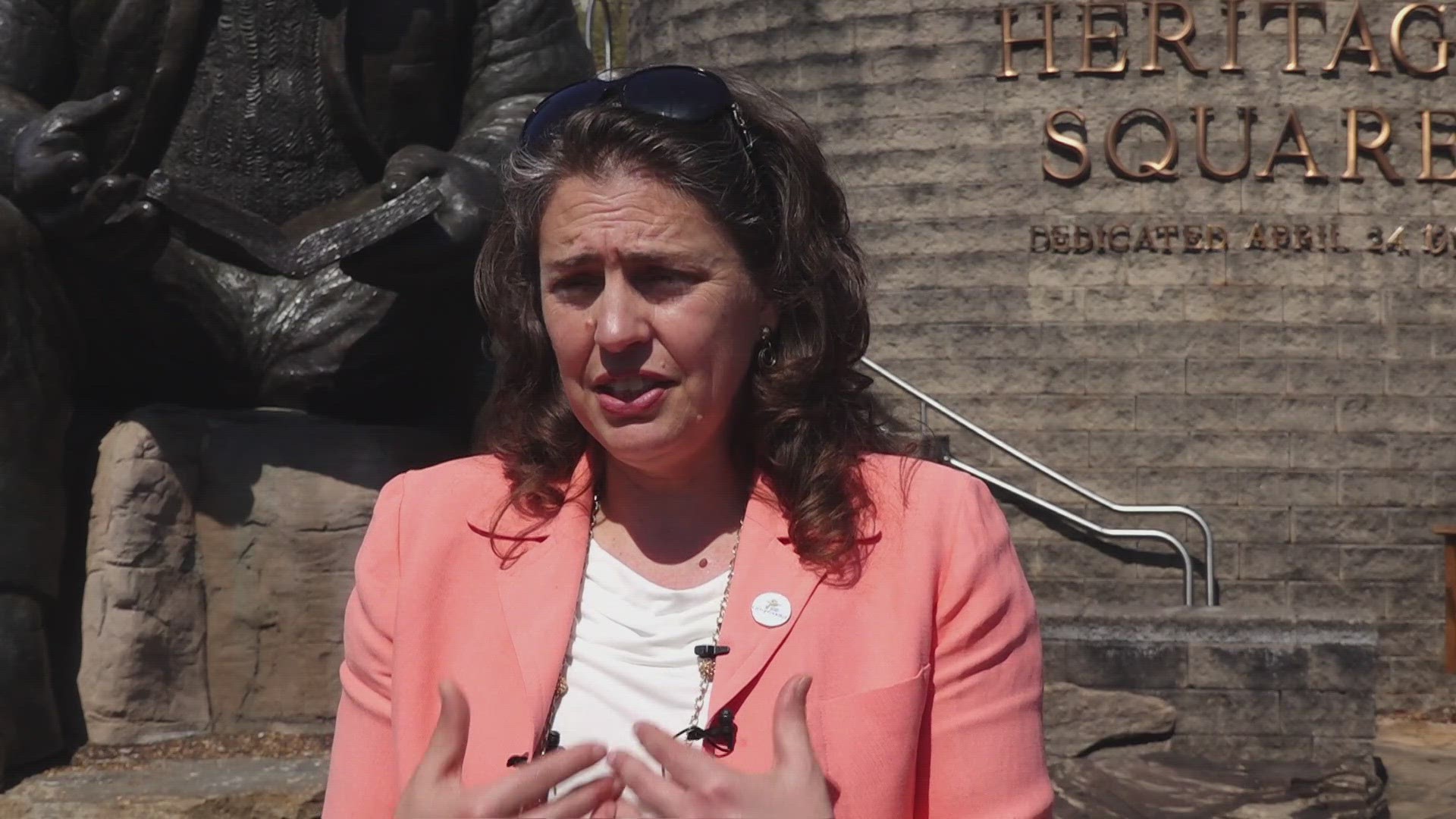KNOXVILLE, Tenn. — Knoxville's Community Development Corporation said Wednesday it received a federal $42.6 million grant from the Department of Transportation. The money will help build and improve infrastructure in areas that were divided by Urban Renewal projects, like the creation of the James White Parkway.
Only two other cities in Tennessee received funding. Chattanooga received $2 million and Memphis/Shelby County also received around $42.6 million.
Knoxville Mayor Indya Kincannon said the grant is helping right a wrong.
"It's consistent with our long-term recognition that Urban Renewal had some really negative consequences, particularly for members of our Black community," said Mayor Kincannon. "And we can't fix we can't change what happened in the past, but we can try to make it better in the future."
The mayor said Knoxville applied for this grant previously but was denied.
"They've had lack of access to opportunities and jobs and, just, access to safe transportation. And this is going to repair and work to heal those wounds. It's reconnecting communities and healing the wounds of Urban Renewal," she said "One really big one is James White Parkway. James White Parkway cuts through from cuts off right from east of downtown to the rest of East Knoxville. If you try to walk under there from East Knoxville, it's not always a pleasant experience. It doesn't always feel like a walkable space. So, the good news is that this grant isn't just coming out of nowhere — it's going to augment existing initiatives that we already have in place."
The project will create nearly ten miles of connectivity improvements for people in East Knoxville. It will also create better connections from East Knoxville to downtown and South Knoxville.
"It's going to take some time to be able to have a whole ecosystem — you're going to be able to have walkability, that is a transportation option that's viable for people to live their lives to get from place to place," said Ben Bentley, the Executive Director of KCDC. "That's particularly impactful for some of the communities that KCDC serves. First Creek at Austin, if you're working on a fixed income, you may not have access to cars. The bus service in Knoxville is fantastic, but it's still a challenge."
Tanisha Baker, the chairperson of the African American Equity Restoration Task Force said this kind of project is a big win.
"It's a huge win because initially, we have tried to garner $100 million to see initiatives that will restore equity, particularly for the African American community," said Baker. "So when you get the largest grant ever that is going to connect our citizens — the thing about it is, there are people here who still remember, who lived through it. And I'm just happy that they will get to see the reversal of the harm that was done."


Baker said she grew up in East Knoxville and she saw firsthand why this connectivity project is needed.
"As a child, I came on the hinges of Urban Renewal," said Baker. "And so I saw the disconnect but really didn't understand its significance. Until I understood the history and learned the history, heard the stories ... and remember the time when we had thriving businesses and communities across the city. For me being a product of East Knoxville, being able to stay connected, support and serve the community I love is so important."
Renee Kesler, the President of the Beck Cultural Exchange Center, also welcomed the grant to improve how East Knoxville is connected to the rest of the city.
"It's an investment in a community that is so deserving of investment," said Kesler. "And so, never mind the fact that the Beck Cultural Exchange Center has been working on this for many years, almost 50 years to be exact."
Kesler said it's important to know the impact of Urban Renewal, and how this project is working on fixing it.
"I think the key is that once you acknowledge that a wrong was done, then you can do a right, it's very difficult to do better when you don't even recognize that you need to. So, I think acknowledgement acknowledges the fact, or enhances the fact, that what we might have messed up. That's a great starting point," she said. "I'm very excited for our community for our neighborhood. And my hope is that our community will be a very intentional part of this process so that we can hear from everybody about, you know, what would make this project the best that can possibly be. "
Mayor Kincannon said the project to reconnect Knoxville will be completed in seven phases. She said there is no set timeline for how long it will take, but construction is expected to begin next year.

